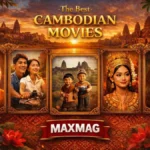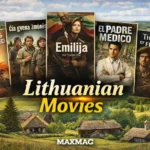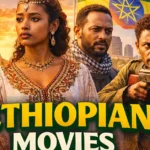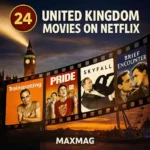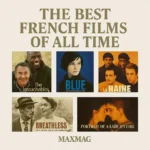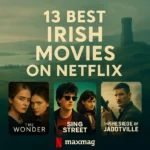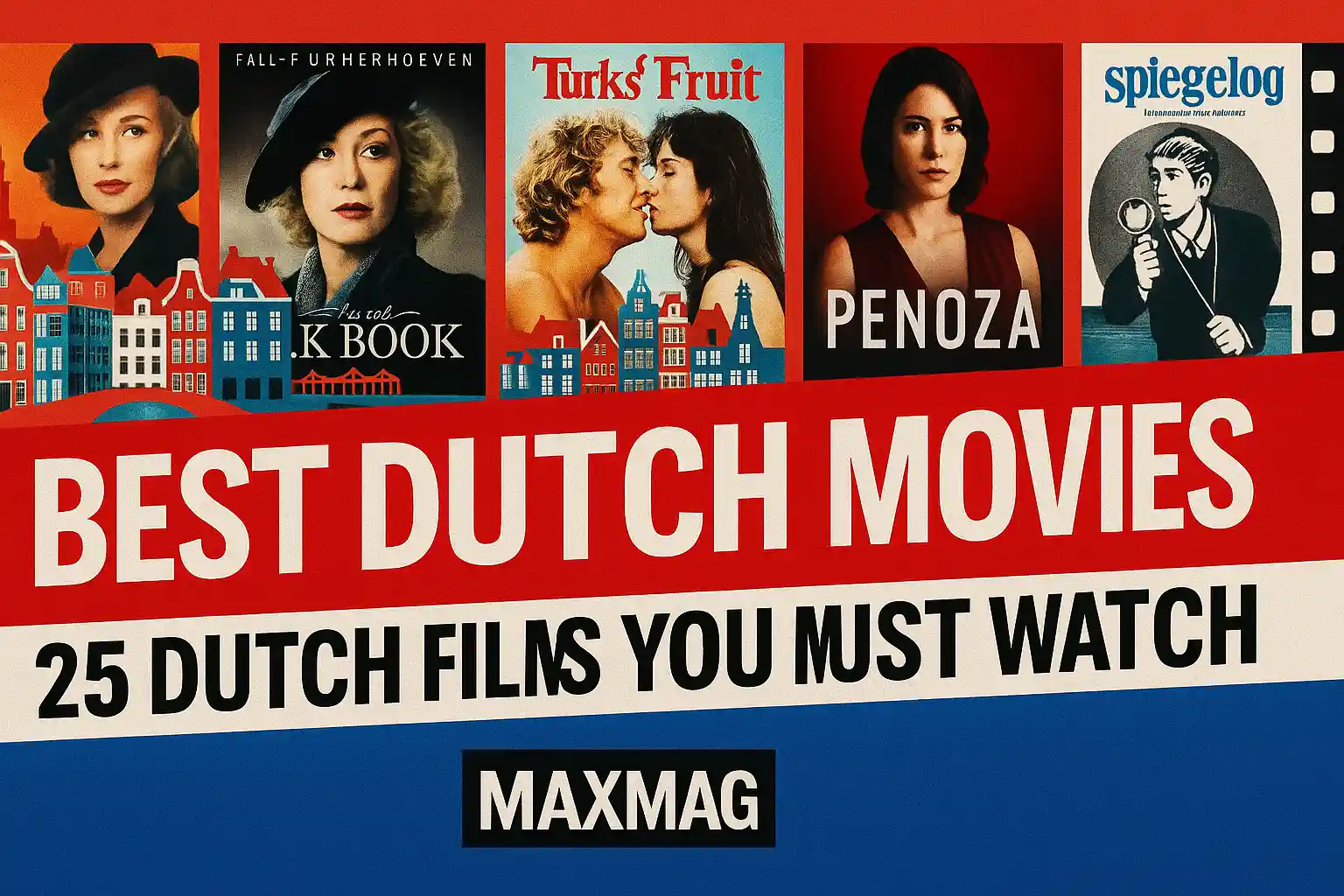
Dutch cinema has long been an underappreciated treasure in the global film industry, producing works that balance realism, artistry, and emotional depth. From historical dramas to thought-provoking modern stories, Dutch movies capture the essence of the Netherlands — its history, people, and culture — in a way that feels both intimate and universal.
The best Dutch films explore a wide spectrum of human experience: love, war, family, justice, and the search for identity. Whether you are new to this national cinema or already familiar with its classics, this guide will help you navigate 25 of the greatest titles that Dutch filmmakers have produced.
Top 25 Dutch Movies (Essential Dutch Films to Watch)
25. Love Is All (2007) – Alles is Liefde
- Runtime: 120 min
- Starring: Carice van Houten, Paul de Leeuw, Jeroen Spitzenberger
- Director: Joram Lürsen
- Genre: Romantic Comedy
- IMDb Rating: 6.6
Often called the Dutch answer to Love Actually, Love Is All brings a warm, interlaced set of stories to Amsterdam at Sinterklaas time, capturing the bustle of the city and the anxieties and hopes of modern romance. The ensemble format lets a wide spectrum of relationships breathe — new sparks, second chances, and long-overdue apologies. What elevates it among Dutch movies is its unforced humor and the way it threads cultural traditions through contemporary lives. Moments of slapstick give way to sincere confessions, while scenic canals and festive lights provide a cozy backdrop. The film celebrates imperfect people trying their best, and it does so with wit rather than cynicism. It’s charming, polished, and irresistibly rewatchable. For viewers seeking accessible Dutch films with heart, this is a delightful entry point.
24. The Fury (2016) – De Helleveeg
- Runtime: 119 min
- Starring: Hannah Hoekstra, Benja Bruijning, Anneke Blok
- Director: André van Duren
- Genre: Drama
- IMDb Rating: 7.0
Adapted from A.F.Th. van der Heijden’s novel, The Fury is a bruising look at memory, gossip, and family mythmaking. A young man’s fascination with his mercurial aunt slowly unspools into a complex portrait of generational trauma, small-town judgment, and the secrets that bind relatives together even as they hurt each other. Hoekstra’s performance is magnetic — by turns brittle, seductive, and wounded — embodying a woman misread by everyone around her. The film’s period detail heightens the sense of claustrophobia: kitchens hum with rumor, streets feel watchful, and every gesture carries subtext. Among Dutch films about family dynamics, this stands out for its refusal to flatten its characters into saints or villains. It’s empathetic without excusing cruelty, precise without feeling clinical, and ultimately moving in its recognition that understanding is not the same as absolution.
23. The Surprise (2015)
- Runtime: 102 min
- Starring: Jeroen van Koningsbrugge, Georgina Verbaan, Jan Decleir
- Director: Mike van Diem
- Genre: Romantic Dramedy
- IMDb Rating: 6.7
Mike van Diem’s offbeat gem begins with a morbid premise — a firm that arranges bespoke “endings” — and blossoms into a playful, oddly life-affirming romance. A wealthy man bored by privilege meets a woman who has made the same fateful contract, and together they discover that indifference is no defense against love. The film glides between screwball energy and philosophical curiosity, asking what it means to choose one’s fate and then unchoose it. Lush production design and nimble editing keep the tone buoyant, while Jan Decleir brings gravitas to the mysterious company pulling strings. As Dutch movies go, it’s a crowd-pleaser with an existential wink — witty, brisk, and far more tender than its premise suggests. It invites viewers to laugh, think, and root for two people learning to savor the open-ended mess of being alive.
22. Spetters (1980)
- Runtime: 120 min
- Starring: Hans van Tongeren, Renée Soutendijk, Jeroen Krabbé
- Director: Paul Verhoeven
- Genre: Drama / Coming-of-Age
- IMDb Rating: 6.7
Raw, provocative, and bristling with energy, Spetters watches a trio of motocross hopefuls crash into the realities of class, sexuality, and ambition. Verhoeven’s camera is restless but unsentimental, locating desire in the body’s exhilarations and the economy’s limits. The film’s frankness about sex and orientation sparked controversy, yet its integrity lies in refusing to smooth messy human contradictions into tidy morals. Soutendijk’s performance slices through the boys’ fantasies, while the racing sequences pulse with danger and possibility. Among Dutch films that depict youth with unflinching honesty, Spetters remains a landmark. It’s a time capsule and a mirror, capturing both the grit of its era and the timeless ache of wanting more than your circumstances offer — and the price of getting it.
21. The Heineken Kidnapping (2011) – De Heineken Ontvoering
- Runtime: 123 min
- Starring: Rutger Hauer, Reinout Scholten van Aschat, Gijs Naber
- Director: Maarten Treurniet
- Genre: Crime / Thriller
- IMDb Rating: 6.5
Revisiting the notorious 1983 abduction of Freddy Heineken, this taut thriller balances procedural detail with psychological strain. Hauer’s dignified, haunted performance anchors the film; he doesn’t play a symbol of corporate power so much as a person who discovers the limits of control. The kidnappers are not glamorized, and the script charts the paranoia and moral erosion that follow fast money. City spaces — garages, safe houses, anonymous streets — become charged with threat. In a crowded field of true-crime Dutch movies, this one stands out for its refusal to sensationalize pain, focusing instead on cause and consequence. It’s gripping, well-acted, and steeped in the uneasy knowledge that some national stories never fully end; they echo in courts, tabloids, and uneasy dinner conversations for decades.
Why Dutch Movies Matter Globally
Dutch movies have influenced international cinema in quiet but durable ways. Visionary directors like Paul Verhoeven and Marleen Gorris bridged festival prestige and mainstream appeal, while auteurs such as Alex van Warmerdam proved that distinctively local stories can travel widely. Today’s Dutch films mix bold form with humane insight — a combination that keeps the country’s cinema fresh, surprising, and globally relevant.
20. The Vanishing (1988) – Spoorloos
- Runtime: 107 min
- Starring: Bernard-Pierre Donnadieu, Gene Bervoets, Johanna ter Steege
- Director: George Sluizer
- Genre: Psychological Thriller
- IMDb Rating: 7.7
Few thrillers are as indelible as The Vanishing, a study in obsession that tiptoes toward the abyss with unnerving calm. The disappearance at a roadside stop is almost banal; the horror lies in how normality masks darkness. Sluizer’s restraint is masterful — no jump scares, just a methodical unveiling that respects the audience’s intelligence. Donnadieu’s chillingly ordinary antagonist is unforgettable, and the ending is the stuff of cinematic legend. As a template for psychological dread, it’s widely cited by filmmakers worldwide, elevating it beyond national borders. Among Dutch films, it’s a touchstone; among international thrillers, it’s a benchmark. Watch it for the craft, for the slow dread, and for the uncomfortable truths it suggests about curiosity and control.
19. Soldier of Orange (1977) – Soldaat van Oranje
- Runtime: 150 min
- Starring: Rutger Hauer, Jeroen Krabbé, Edward Fox
- Director: Paul Verhoeven
- Genre: War / Drama
- IMDb Rating: 7.7
Verhoeven’s WWII epic follows university friends whose paths diverge under occupation: loyalty, pragmatism, cowardice, and courage collide. The film excels at scale — parachute drops, resistance missions, royal audiences — without losing sight of the intimate costs of war. Hauer’s charisma is undeniable, but the ensemble work is what lingers: friendships fray, and choices calcify into destinies. It’s a foundational entry in Dutch movies, a film that helped define how the nation sees its wartime past on screen. The narrative’s moral complexity avoids easy hero worship; survival is messy, and nobility is rarely pure. Decades on, it remains stirring, mature, and cinematically muscular.
18. Antonia’s Line (1995) – Antonia
- Runtime: 102 min
- Starring: Willeke van Ammelrooy, Els Dottermans, Dora van der Groen
- Director: Marleen Gorris
- Genre: Drama
- IMDb Rating: 7.4
Winner of the Oscar for Best Foreign Language Film, Antonia’s Line builds a matriarchal haven that feels both realistic and gently enchanted. The village is a chorus of voices — tender, cantankerous, wounded, mischievous — and Antonia moves through it with unwavering moral clarity. Gorris threads themes of autonomy, chosen family, and generational healing into scenes that hum with humor and compassion. The film’s feminism is lived-in rather than didactic; characters claim space not as slogans but as daily practice. Among Dutch films, it’s a beacon of humane storytelling, generous to its oddballs and fiercely protective of the vulnerable. It invites viewers to imagine communities where dignity is not a prize but a baseline.
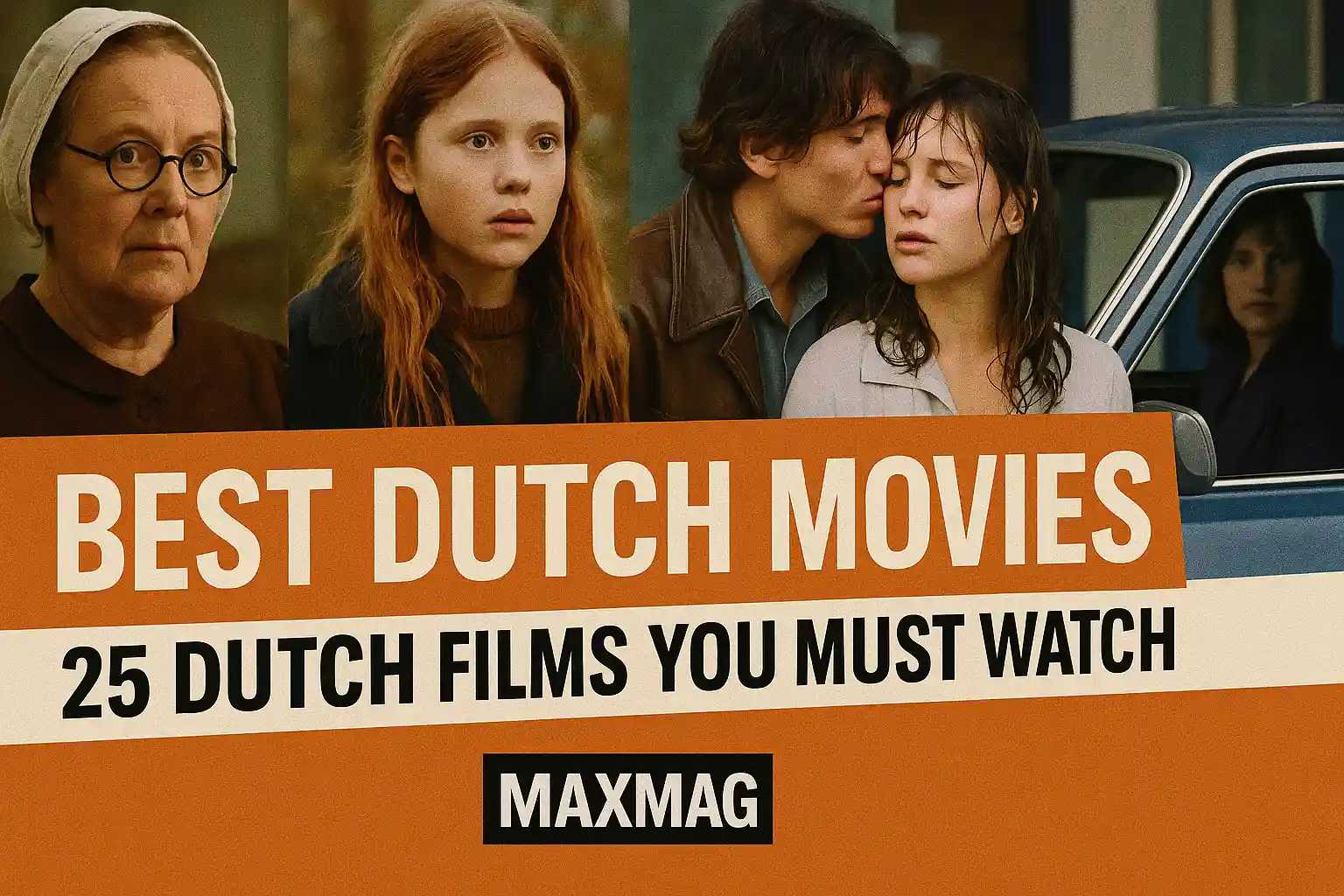
17. The Discovery of Heaven (2001) – De ontdekking van de hemel
- Runtime: 150 min
- Starring: Stephen Fry, Jeroen Krabbé, Flora Montgomery
- Director: Jeroen Krabbé
- Genre: Fantasy / Drama
- IMDb Rating: 6.7
Ambitious and unabashedly literary, this adaptation of Harry Mulisch’s novel blends metaphysical intrigue with very human entanglements. Angels scheme, nations jostle, friendships tangle, and a child becomes the fulcrum of a cosmic plan. Stephen Fry lends warmth and wit, while Krabbé’s direction embraces the story’s riddle-box structure. It’s a rarity among Dutch movies: a philosophical fantasy that asks big questions without losing narrative momentum. The production travels widely — emotionally and geographically — and the soundtrack adds a stately gloss. Imperfect but daring, it’s the kind of swing that keeps a national cinema vibrant, proving that curiosity can be as compelling as certainty.
16. Character (1997) – Karakter
- Runtime: 122 min
- Starring: Fedja van Huêt, Jan Decleir, Betty Schuurman
- Director: Mike van Diem
- Genre: Drama
- IMDb Rating: 7.7
Character distills the bitter struggle between a striving young lawyer and his tyrannical father into Gothic-tinged tragedy. Soot-streaked streets and austere offices frame a story about class, pride, and the cost of becoming someone in a world designed to keep you small. Jan Decleir’s performance is titanic — terrifying yet fathomably human — while Fedja van Huêt charts ambition’s corrosive burn. Every door seems heavier than it should be; every handshake hides a test. Among Dutch films, it’s as impeccably crafted as they come, the kind of period piece that feels modern because the emotions never age. The Oscar win was no anomaly; it was recognition of rigorous, resonant filmmaking.
15. Winter in Wartime (2008) – Oorlogswinter
- Runtime: 103 min
- Starring: Martijn Lakemeier, Yorick van Wageningen, Jamie Campbell Bower
- Director: Martin Koolhoven
- Genre: War / Coming-of-Age
- IMDb Rating: 7.0
Drawing from Jan Terlouw’s beloved novel, Winter in Wartime sees a sheltered teenager pulled into the resistance after finding a wounded pilot. Snowy landscapes isolate him as moral horizons blur; heroism and recklessness trade places scene by scene. Koolhoven balances brisk set pieces with quiet reckonings — a stolen glance, a withheld truth, a friendship fraying under pressure. The film’s power lies in showing how war colonizes ordinary life, repurposing barns, bicycles, meals, and bedtime stories into instruments of survival. Among youth-centered Dutch movies, it’s exemplary: accessible, tense, and honest about the weight of choices made before adulthood properly begins.
14. The Dress (1996) – De Jurk
- Runtime: 118 min
- Starring: Johan Leysen, Henri Garcin, Lysette Anthony
- Director: Alex van Warmerdam
- Genre: Drama / Dark Comedy
- IMDb Rating: 7.1
Van Warmerdam’s mordant fantasia follows a single dress as it ricochets through lives, triggering desire, humiliation, and chance. The conceit is simple; the implications are vast. Who gets to look? Who gets looked at? And what happens when fate is just the conveyor belt of everyday transactions? The director’s painterly frames and deadpan rhythms create an ecosystem where cruelty and tenderness coexist. It’s one of the most formally inventive Dutch films of its decade, a satire whose jokes land with a wince. By the end, the dress feels like a mythic object — cursed, coveted, and, above all, revealing.
13. Simon (2004)
- Runtime: 102 min
- Starring: Cees Geel, Marcel Hensema, Rifka Lodeizen
- Director: Eddy Terstall
- Genre: Comedy / Drama
- IMDb Rating: 7.6
Blending gallows humor with big-hearted empathy, Simon explores an unlikely friendship between a flamboyant hustler and a reserved dentist. The film takes on euthanasia, homophobia, and chosen family with disarming ease, letting banter give way to difficult conversations. Cees Geel’s title character is a whirlwind — infuriating, generous, unforgettable — and the narrative respects his agency without airbrushing his flaws. As Dutch films go, it’s a model of tonal dexterity: you laugh loudly, then realize a scene has quietly rearranged your feelings. Its awards were well earned, but its true legacy is the way it makes compassion feel thrilling.
12. Twin Sisters (2002) – De Tweeling
- Runtime: 137 min
- Starring: Ellen Vogel, Thekla Reuten, Nadja Uhl
- Director: Ben Sombogaart
- Genre: Historical Drama / Romance
- IMDb Rating: 7.5
Sombogaart’s sweeping adaptation traces twins separated in childhood — one raised in Dutch comfort, the other in German hardship — as war rewrites their fates. The film moves with classical assurance, luxuriating in period texture while staying anchored in the sisters’ aching efforts to bridge distance. Letters, chance meetings, and family secrets stitch a delicate web of connection. It’s a story of how history infiltrates intimacy, and how forgiveness asks more than memory can sometimes bear. Among prestige Dutch movies, it’s both grand and intimate, its emotions cleanly articulated and deeply felt.
11. Amsterdamned (1988)
- Runtime: 113 min
- Starring: Huub Stapel, Monique van de Ven, Serge-Henri Valcke
- Director: Dick Maas
- Genre: Horror / Thriller
- IMDb Rating: 6.6
Part slasher, part action romp, Amsterdamned turns the city’s canals into sinister arteries, pulsing with chase sequences and grisly surprises. Maas’s knack for set pieces yields a legendary boat pursuit, while sardonic humor keeps the mood lively. The film revels in genre mechanics — red herrings, masked menace, kinetic editing — yet its location work gives it a distinctive flavor. As a cult favorite among Dutch films, it proves national cinema needn’t be solemn to be memorable. It’s the kind of movie that turns tourists into genre fans and genre fans into canal cruise skeptics.
10. Borgman (2013)
- Runtime: 113 min
- Starring: Jan Bijvoet, Hadewych Minis, Jeroen Perceval
- Director: Alex van Warmerdam
- Genre: Psychological Thriller
- IMDb Rating: 6.7
Sinister and slyly funny, Borgman follows a drifter who insinuates himself into a wealthy family, unraveling their certainties thread by thread. Van Warmerdam stages dread with geometric precision, each composition a trap waiting to spring. The film flirts with fairy-tale logic and social satire, suggesting that the true horror isn’t the intruder but the rot already in the walls. Cannes celebrated its audacity, and for good reason: few Dutch movies so skillfully combine arthouse chill with mischievous bite. It lingers like a smudge on glass — you keep wiping, but something remains.
9. Redbad (2018)
- Runtime: 160 min
- Starring: Gijs Naber, Egbert Jan Weeber, Loes Haverkort
- Director: Roel Reiné
- Genre: Historical Epic
- IMDb Rating: 5.5
Ambitious in scope and mounted with muscular craft, Redbad dramatizes the resistance of the Frisian king against encroaching powers and new faiths. Battle tableaux, rugged coastlines, and thunderous score give the film a mythic heft. While critics debated its liberties, the production’s scale is undeniable, harking back to old-school epics with modern polish. As one of the more maximalist Dutch films of the 2010s, it signals an industry capable of swinging for the fences. Imperfect but invigorating, it’s a gateway for viewers craving swords-and-shields storytelling anchored in local legend.
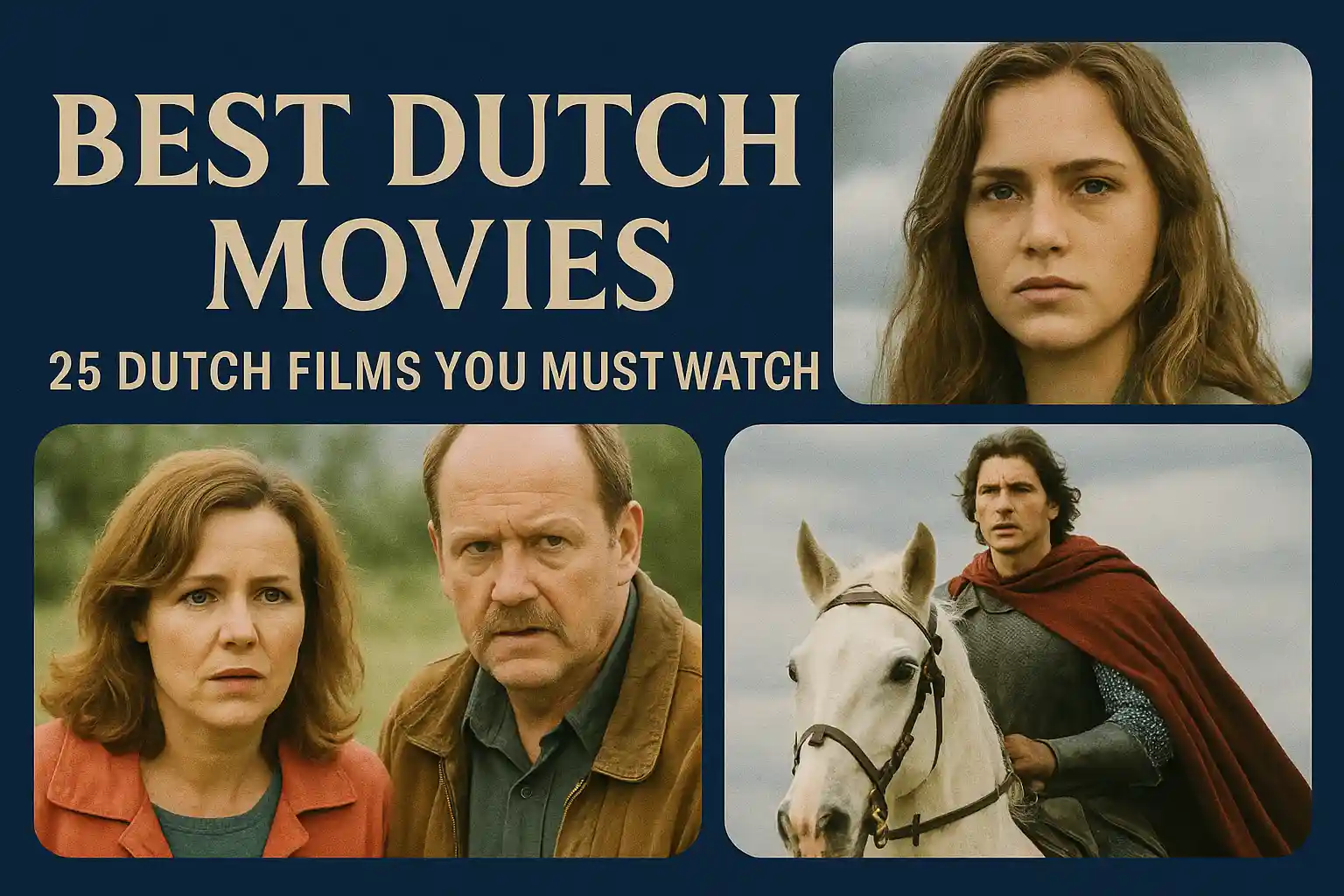
8. The Storm (2009) – De Storm
- Runtime: 90 min
- Starring: Sylvia Hoeks, Barry Atsma, Dirk Roofthooft
- Director: Ben Sombogaart
- Genre: Disaster / Drama
- IMDb Rating: 6.6
Set amid the catastrophic North Sea flood of 1953, The Storm weaves a mother-and-child rescue odyssey through a nation in crisis. Sombogaart balances spectacle — surging waters, collapsing dikes — with exacting human detail: a photograph snagged on debris, a lullaby swallowed by wind. Sylvia Hoeks anchors the drama with grit and vulnerability, showing how love clings to even the most precarious footholds. Among historically rooted Dutch movies, it’s a potent reminder of the Netherlands’ fraught dance with water, honoring resilience without lapsing into kitsch. The final notes feel earned, not engineered.
7. Little Crumb (1999) – Kruimeltje
- Runtime: 119 min
- Starring: Ruud Feltkamp, Rick Engelkes, Thekla Reuten
- Director: Maria Peters
- Genre: Family / Adventure
- IMDb Rating: 7.0
Maria Peters’ adaptation of Chris van Abkoude’s classic novel is a bustling, big-hearted crowd-pleaser. Orphaned Kruimeltje navigates 1920s Rotterdam with pluck, making allies of street vendors, strays, and the audience itself. The film is rich with period bustle — trams clang, markets chatter, winter bites — and it treats children’s emotions with adult seriousness. Humor softens hardship, and the quest for family never curdles into sentimentality. As family-friendly Dutch films go, it’s a cornerstone, the kind of movie that becomes a tradition: quoted, rewatched, and fondly misremembered until the next holiday season brings it back.
6. Kauwboy (2012) – Little Bird
- Runtime: 81 min
- Starring: Rick Lens, Loek Peters, Cahit Ölmez
- Director: Boudewijn Koole
- Genre: Family / Drama
- IMDb Rating: 7.1
Kauwboy is tender without being fragile, following a boy who rescues a jackdaw and, in caring for it, learns to name his own losses. Koole keeps the camera at child height, letting ordinary spaces feel enormous — a hallway, a bus stop, a nest on a branch. The film respects silence; not every feeling has dialogue, and that trust invites viewers in. Festivals embraced it because its specificity reads universal: love is a verb, and healing often looks like feeding something small until it can fly. Among contemporary Dutch films, it’s a quiet treasure.
5. The Assault (1986) – De Aanslag
- Runtime: 152 min
- Starring: Derek de Lint, Monique van de Ven, John Karlsen
- Director: Fons Rademakers
- Genre: War / Drama
- IMDb Rating: 7.2
Rademakers’ Oscar-winning drama begins with a wartime atrocity and expands into a lifetime of repercussions. The protagonist chases fragments of truth through postwar decades, discovering that history rarely offers clean verdicts. Elegant structure and restrained performances keep the melodrama at bay; when revelations arrive, they bruise rather than blare. As a meditation on memory — private, collective, unreliable — it’s among the most sophisticated Dutch movies. The final passages land with the hush of a confession and the relief of finally naming what once could not be spoken.
4. The Admiral (2015) – Michiel de Ruyter
- Runtime: 128 min
- Starring: Frank Lammers, Sanne Langelaar, Barry Atsma
- Director: Roel Reiné
- Genre: Historical Drama
- IMDb Rating: 7.0
Roel Reiné’s naval epic charts the rise of Michiel de Ruyter with briny swagger and meticulous craft. Ship-to-ship battles boom with tactile weight; rigging creaks, cannons thunder, strategy matters. Yet the film is not mere pageant — it weighs civic duty against political intrigue, public honor against private cost. Lammers plays de Ruyter as a leader who understands that charisma without competence sinks fleets. For viewers curious about nation-building on water, few Dutch films are this rousing without sacrificing nuance. History here isn’t homework; it’s high seas human drama.
3. Black Book (2006) – Zwartboek
- Runtime: 145 min
- Starring: Carice van Houten, Sebastian Koch, Thom Hoffman
- Director: Paul Verhoeven
- Genre: War / Thriller
- IMDb Rating: 7.7
Verhoeven’s homecoming after Hollywood is a masterclass in suspense, character, and moral ambiguity. Carice van Houten delivers a career-defining turn as a Jewish singer who infiltrates Nazi ranks; every alliance is provisional, every kindness suspect. The film crackles with set-piece ingenuity and emotional stakes, yet never loses sight of the human toll of occupation. It’s glossy without being glib, thrilling without being cruel. In the canon of Dutch movies, Black Book is both popular triumph and critical darling — a rare alignment that speaks to its craftsmanship and courage.
2. Keetje Tippel (1975) – Katie Tippel
- Runtime: 111 min
- Starring: Monique van de Ven, Rutger Hauer, Andrea Domburg
- Director: Paul Verhoeven
- Genre: Period Drama
- IMDb Rating: 6.8
Set in 19th-century Amsterdam, Keetje Tippel charts a young woman’s climb from poverty through grit, beauty, and terrible compromises. Verhoeven’s sensuous, unsparing style refuses to prettify deprivation; dirt is not metaphorical, and respectability is a transaction. Monique van de Ven is incandescent, capturing a survivor’s quick calculations and tender hopes. The film probes class and gender with unapologetic directness, making it one of the most incisive social portraits in Dutch films. It’s a period piece that feels joltingly present, reminding us how economies write themselves on bodies.
1. Turkish Delight (1973) – Turks Fruit
- Runtime: 108 min
- Starring: Rutger Hauer, Monique van de Ven
- Director: Paul Verhoeven
- Genre: Romance / Drama
- IMDb Rating: 7.1
Turkish Delight is the sun-shot, tear-streaked love story that redefined Dutch screen intimacy. Hauer’s sculptor blazes with erotic bravado and boyish vulnerability; van de Ven meets him with radiant freedom and heartbreaking fragility. Verhoeven’s camera is fearless but never coarse, chasing the couple from euphoria to devastation with an immediacy that still stings. It became a cultural touchstone — a box-office phenomenon and a critics’ darling — and remains the apex of 1970s Dutch movies. Few romances anywhere capture desire’s volatility so completely, or honor love by refusing to lie about its cost.
Conclusion: Why You Should Explore Dutch Movies
The world of Dutch movies is as diverse as the Netherlands itself — from the historic canals of Amsterdam to rural landscapes, from tales of love and loss to daring thrillers and festival-winning dramas. What makes Dutch films stand out is their ability to merge realism with imagination, speaking to universal human experiences while remaining deeply rooted in Dutch culture and history. They do not simply entertain; they challenge, provoke, and inspire, offering viewers unique insights into resilience, identity, and the complexities of morality.
For newcomers, this list of the 25 best titles is only the beginning. Classic works like Turkish Delight or The Vanishing remain as vital today as when they premiered, while contemporary successes like Borgman and Black Book prove that Dutch creativity continues to shape global cinema. Exploring Dutch films is not only a chance to enjoy powerful stories, but also to understand how a small country has consistently punched above its weight in the international film scene.
If you’re looking to dive deeper, resources such as The New York Times Movies section and The Hollywood Reporter regularly discuss global cinema, including the influence of European works. By following these outlets and exploring the films highlighted here, you’ll gain both context and appreciation for how Dutch movies continue to inspire cinephiles worldwide.

